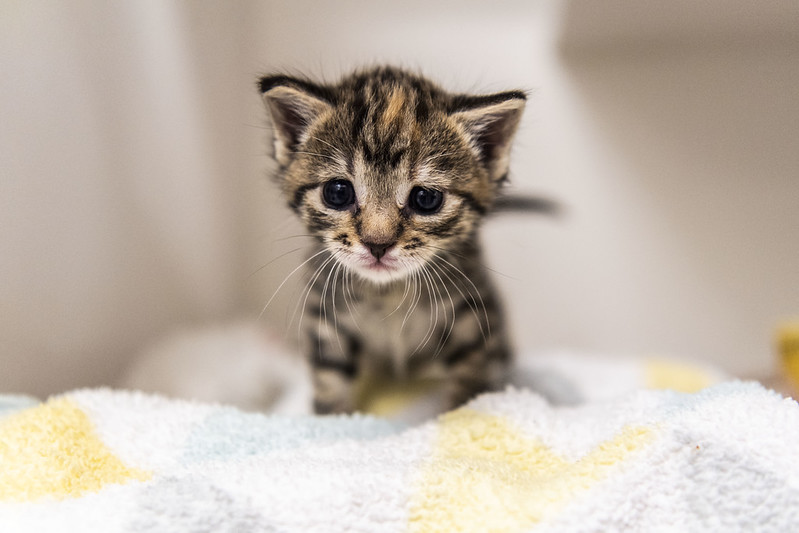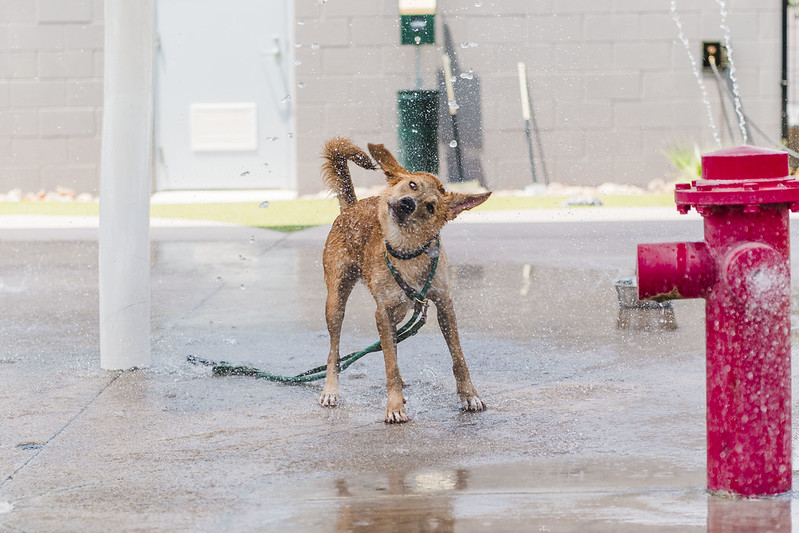© 2024 ALLCITY Network Inc.
All rights reserved.

When PHNX Sports began highlighting dogs for adoption and fostering last year at Maricopa County Animal Care & Control’s east shelter in Mesa, I steeled myself for the depressing conditions at that overcrowded, underfunded, understaffed and badly outdated facility.
When I stepped inside Heidi’s Village for the first time this summer, I had a “Wizard of Oz” revelation.
You’re not in county anymore.
Instead of rows of tiny kennels housed by psychologically deteriorating dogs who hadn’t been walked or talked to for days, I entered a bright and open campus with eight separate buildings for dogs and cats, play areas outside each of those buildings, a splash pad, an on-site veterinary clinic, an on-site groomer, training rooms and evidence of what the staff calls enrichment activities for the dogs; paw paintings that include smiling photos of the artists on the corners of those canvasses.
It was like going from a maximum security prison to a Marriott.
I met two friendly dogs who were being walked.
I met Tito, a stray chihuahua, who was despondent and fearful when he arrived two weeks earlier, but was now leaping at the fence of his play area to meet strangers passing by.
When I entered one of the cat buildings, I noticed a large-screen television. I wondered about its purpose until I turned to discover a cat fixated on that screen which featured scenes of active birds.
“There really is no model like Heidi’s Village,” said founder Virginia (Ginny) Jontes, who began conceptualizing the facility in 2017 and opened its doors in April 2020, at the start of the global pandemic. “I would like other states to adopt it and to come and see it, and that’s probably something to focus on in the future.”
Heidi’s Village offers:
- Low-cost boarding for rescued cats and dogs
- Low-cost veterinary services
- A neonatal kitten nursery
- A grooming room
- Behavioral training
- About 80 employees
- Enrichment activities for animals
- Shaded play areas for each building and a centrally located splash pad
- Adoptions
- Fostering
- Volunteering
- Space for up to 200 cats and 264 dogs. Each dog kennel has individual indoor and outdoor spaces that are screened from nearby kennels to give dogs a space where they can enjoy a distraction-free and safe, private area, thereby eliminating stress.
Heidi’s Village offers a safe harbor for rescue groups all over Arizona.
“Our mission is to help the rescues; the 501(c)(3)s that I have a relationship with,” Jontes said. “But we’ll take in animals from any of the rescue groups. It doesn’t matter. ”
Like many states, Arizona’s homeless animal population has spiked for a variety of reasons, whether its economic issues, domestic issues, failure to spay and neuter pets or outright abandonment. When captured or surrendered, those animals often end up in county’s east and west facilities, or in overflowing rescue facilities that can’t keep up with the demand, despite their noble intentions.
If someone applies to adopt an animal that is housed at Heidi’s Village, the shelter that rescued it can retrieve it for adoption. In the meantime, Jontes doesn’t want the animal’s life to feel like a depressing waiting room.
“When I was working for rescue groups myself, I saw that most of them were full and they’d have animals in the garage, in the backyard, in kennels,” Jontes said. “I wanted to create a fun place to work and a fun place for the animals; a happy place where the animals could come and play. If they’re not adopted right away, I want them to learn that life isn’t just a struggle; that there’s a higher power that’s come in to help them to have fun in life and give them the love that they deserve.”

Jontes grew up in Ferguson, Missouri in a neighborhood where she says everyone had animals. Her grandfather was a farmer who had cows, chickens, pigs and sheep that she helped take care of in the summers, further deepening her love for animals.
When she moved to Arizona two decades ago, she worked in real estate, buying and renovating homes before selling them, but she also became increasingly involved with the rescue community, which included helping dogs escape homes where domestic violence was a reality.
One day, a woman called her to ask if Jontes could sell her home. She visited the home and learned that there was one condition for her business: the woman wanted Jontes to take care of her schnauzer, Heidi, when the elderly woman died. Jontes has always had schnauzers and she loved Heidi instantly so she agreed. The woman passed in 2016 and Jontes had Heidi for six years, providing the inspiration and the name for her life’s magnum opus.
“It’s like a store that has everything,” she said. “I wanted it to be a place for the rescues where they could go and get their dogs groomed because I saw how the rescue groups struggled with the simple process of having to drop off several animals because you want them to look good for adoption. They struggled with funding for that.
“I thought having the medical clinic was also essential in getting them the on-site care they need. And then there’s the behavior side of it that’s important because a lot of these animals have been on the street so they are skittish. They don’t relate to people a lot so we have to get them kind of acclimated to people and know that we’re not going to hurt you.”
While rescue services cover some of the cost of care at Heidi’s Village, a large chunk of that money still comes from Jontes herself. The Virginia B. Jontes Foundation, her 501(c)(3) nonprofit corporation, paid for the $22 million construction of Heidi’s Village and Jontes is funding other parts of it out of her own pocket, underscoring the need for more donations and benefactors.
Heidi’s Village needs supplies and volunteers, but medical funding is one of the greatest areas of need because so many of the animals that arrive at Heidi’s Village are sick or have serious medical issues. Their care is costly.
“Heidi’s Heroes is one place to help by giving a monthly gift of maybe $10 or $20,” Jontes said. “Anything helps and it all adds up to a big amount, which helps us to support the animals.”
Despite the myriad challenges associated with homeless animals, Jontes said the staff sees just as many rewards.
“Our adoption rates are good, and they’re good for our rescues so we do have space for more animals,” Jontes said. “But again, it’s about getting them back to a happy place. We had one cat that came in that was really abused. It’s too awful to even talk about, but we brought that little kitten in, we nurtured it, got it back to health and we got it adopted out.
“The people who adopted it are so happy and they sent us pictures afterward. I love seeing pictures of the families with their animals on a couch or in their home and they say, ‘Thank you for saving this animal.’ That’s fantastic. That’s why we’re here.”
For more information on adoption, fostering, volunteering, donating, or for information about the animals housed there, visit the Heidi’s Village website.

Get Arizona's Best Sports Content In Your Inbox!Become a smarter Arizona sports fan with the latest game recaps, analysis and exclusive content from PHNX's writers and podcasters!
Just drop your email below!
Comments
Share your thoughts
Join the conversation



